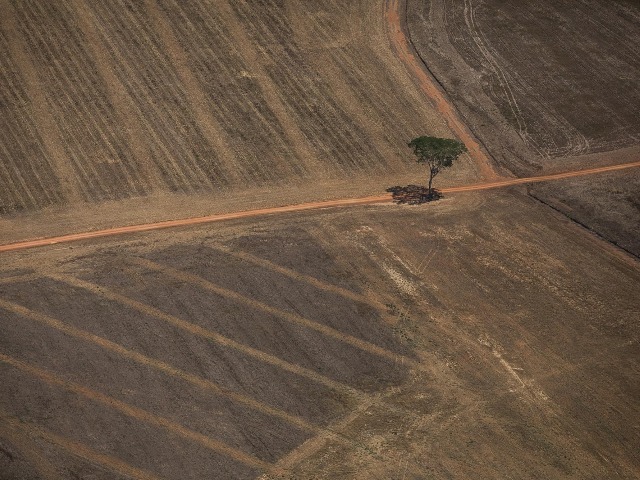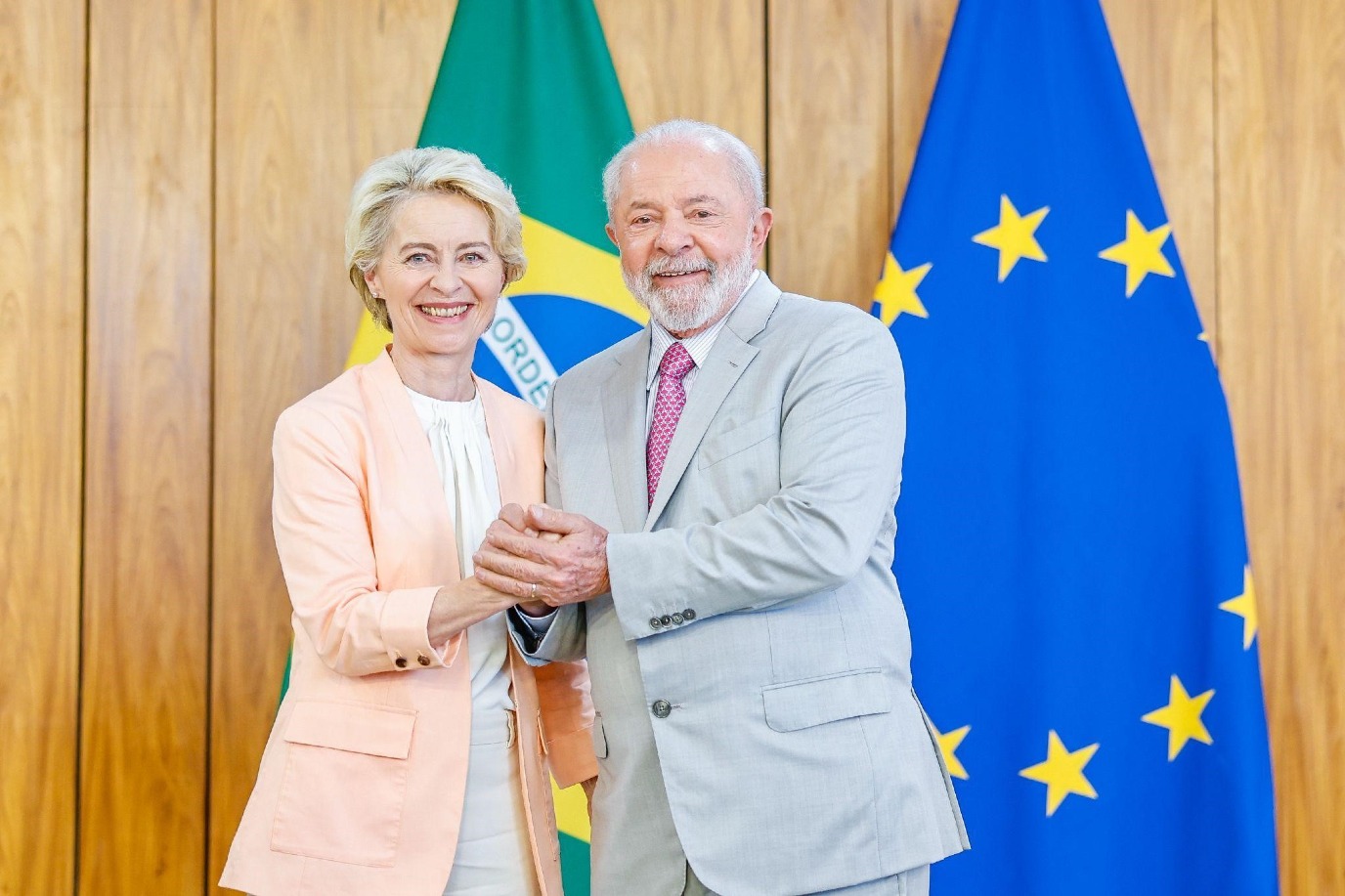Mercosur: The continued attempt to make free trade sustainable
| Date: | 06 July 2023 |
| Author: | Valentin Wittig |

After decades of negotiations, an agreement was reached in 2019 to advance the implementation of tax-free trade between the European Union (EU) and the Latin American economic federation of Mercosur. Talks to finalize the deal have been intensifying since the election of Lula da Silva as the President of Brazil. Globally, there is a trend towards developing bold policies to reduce emissions and decarbonize the economy while simultaneously addressing social injustices. Sparked by environmental movements or new Intergovernmental Panel on Climate Change (IPCC) reports, everyone seems to be working hard to mitigate the climate catastrophe. Or are we? In reality, such agreements often reproduce a framing of sustainability strongly linked to continued growth, potentially achieving the opposite of its intention: aggravating social inequalities and environmental degradation.
Regarding the Mercosur agreement, the central question is how it will affect the Amazon rainforest where deforestation driven by agribusiness has accelerated over the past years (Friends of the Earth Europe, 2023). If this continues, the ecosystem could reach a tipping point with dramatic effects on the global climate system and on the livelihoods of local communities (Kehoe et al., 2020). Currently, politically powerful agribusiness is driving deforestation in the Amazon, continuously appropriating land for growth and capitalism. The land is used to rear cattle for beef production, grow soy for animal feed or corn to produce ethanol fuel. A rise in emissions from land-use changes and in aggression against agricultural workers can be linked to the presidential term of Jair Bolsonaro, da Silva’s predecessor. In addition, the agricultural practices mentioned are directly connected to European companies and consumption, hence Europe plays a major role in land grabbing, environmental crimes and human rights violations in the Amazon (Friends of the Earth Europe, 2023). For instance, one football field of deforestation is imported by the EU from the Mercosur every 3 minutes (Kehoe et al., 2020). Further increases in land-use changes from forest to agriculture are anticipated, should the treaty be ratified, accelerating climate change through greenhouse gas emissions (Friends of the Earth Europe, 2023).
The treaty is influenced by subjective views on the role of trade to increase sustainability. President of the European Commission, Ursula von der Leyen visited Brazil in June 2023 to push for a concrete agreement by the end of 2023. Cem Özdemir, German Minister for Food and Agriculture, stressed that the agreement is an opportunity to merge sustainability with improved trade relations (Dahm, 2023). New markets would decrease Germany’s trade dependencies, following new geopolitical changes after the Russian invasion of Ukraine. Free trade would create new jobs and export opportunities and strengthen the competitive position with the United States and China. EU member states like Germany aim to strengthen environmental protection in Brazil and include forest-based communities in new supply chains (Kehoe et al., 2020). The German government emphasized that it will only agree to implement the treaty if an additional Amazon protection agreement is drawn up and working conditions in the agricultural sector are verifiable. In theory, trade agreements could enhance sustainability if they are inclusive, transparent and enforceable (Kehoe et al., 2020). However, the recent draft is void of any potential sanctions to enforce sustainability and human rights standards (Bauchmüller & Diesteldorf, 2023). Although a provisional deal to ban imports from recently deforested areas in Brazil was reached in 2022, applicable to meat, soy, wood, rubber, cocoa, coffee and palm oil (Neslen, 2023), the treaty itself does so far not go beyond the precautionary principle and its terms on deforestation are non-binding.

The reason for that could be that the agreement is centered around growth. For example, German car manufacturers in South America could achieve a higher market share. In order to continue this business-as-usual, sustainability is appropriated under concepts like green growth or Green New Deal. The treaty will most likely increase emissions, contradicting the EU’s own climate targets (Kehoe et al, 2020; Robinson, 2020). European countries repeatedly call to stop destruction of the rainforest but fail to look at their own supply chains and think through ways to apply ideas of degrowth.
Meanwhile, Brazilian negotiators emphasize that problems could be solved easily by building a market around sustainable products while sanctions as a way to enforce sustainability criteria are looked at with a critical eye. President Lula da Silva has been supporting the agreement and also aims to expand economic collaboration with China. The research institute Plataforma Cipó, which presented the Climate and International Strategy: New Directions for Brazil at COP27 in November 2022 (United Nations Climate Change Conference), stressed that the EU-Mercosur agreement requires “socio-environmental, climate and human rights responsibility” (Abdenur et al., 2022, p.12), for instance preventing the externalization of Europe’s carbon emissions. In addition, the platform warns of other risks like the export of old vehicles to Brazil as a result of the energy transition in Europe. The treaty should not result in the deindustrialization of Brazil, highlighting the dependence of many livelihoods on industries, again presenting a strong link to economic growth. Whereas degrowth ideas are applicable to the European side of the treaty, Brazil as a large emerging economy may indeed need growth for social development. Brazil has committed itself to supporting environmental justice movements and participation in environmental decision-making by signing the Escazú agreement with many other Latin American and Caribbean countries. But the question of how to include and go beyond the piecemeal consultation of Indigenous people in the EU-Mercosur agreement remains. The newly established Ministry of Native Peoples of Brazil could become instrumental in this respect and make use of the UN Declaration on the Rights of Indigenous Peoples and the UN Permanent Forum on Indigenous Issues.
While the good intentions are evident, we see some familiar patterns emerge once we take a broader perspective. Essentially, the EU-Mercosur free trade deal is centered around the idea of increasing the amount of products exchanged. However, this exchange risks being unequal: usually, more resources flow from the periphery of the global economy to the core areas than vice versa. Resources in this case encompass labor, energy and land, thus more than the monetary aspects. For instance, the amount of space used for agriculture destined for European markets is not proportional to the space allocated to export products in Europe. Unequal exchange actually facilitates the “seamless functioning of modern technology”, for instance the German car industry (Dorninger at al., 2021, p.10). Progress and growth happen at the expense of the global periphery, hinterlands, and backyards. Hence, unequal trade patterns could externalize the environmental burden to Brazil, reinforce social inequalities and become counterproductive to sustainability practices (Dorninger at al., 2021).
The externalization of negative impacts is also inextricably linked to the high amount of resources consumed in European countries that overshoots ecological boundaries. Trying to hold on to the benefits derived from the high level of consumption in Europe by importing more products could intensify neo-colonial relationships with Mercosur countries. The global economy is not an even playing field as often assumed. Industrial growth of European countries originated in the colonial era and is still linked to appropriation from the periphery today, long after the colonialists left (Hickel et al., 2022). Still, such root causes are not addressed: production outsourcing is not questioned and pollution outsourcing only treated in retrospect. Access to new markets and products to achieve surplus is first on the agenda for both Germany and Brazil, again attempting to merge sustainability and growth, and conflate local livelihoods with global supply chains.
Brazil hopes to boost local economies and force them to be sustainable through regulation with a clear focus on more trade and less rules. Germany aims for continued resource provision at low prices with emphasis on close cooperation to preserve local nature and livelihoods. In the end, such aspects are secondary to the economic nature of the agreement that assumes an overarching growth narrative, under which enforcement could become difficult once a system of fast profits is in place. Achieving ‘sustainable’ supply chains should instead begin with local communities and strict environmental standards. A successful implementation of degrowth in South America to decommodify resources at the local level has been the concept of Buen Vivir. While it could offer a starting point for local community needs being reflected in the Mercosur agreement, the large scale of the treaty would likely threaten any process aiming for a harmonious relationship between man and nature.
This work has been crafted by Valentin Wittig, as part of the course 'Critical Approaches to Global Sustainability Challenges' at the University of Groningen, Faculty of Spatial Sciences. The course was taught by Ethemcan Turhan and Christian Lamker (Department of Spatial Planning and Environment) between February and April 2023 as an elective course for Master students in the programme Society, Sustainability and Planning (SSP) and other Master programmes of the Faculty and the University.
References
Dorninger, C., Hornborg, A., Abson, D.J., von Wehrden, H., Schaffartzik, A., Giljum, S., Engler, J.-O., Feller, R.L., Hubacek, K. & Wieland, H. (2021). Global patterns of ecologically unequal exchange: Implications for sustainability in the 21st century. Ecological Economics, 179, 106824.
Friends of the Earth Europe (2023). Mercosur files. How European trade deals will propel destructive agribusiness in the Mercosur region. Friends of the Earth Europe. Available at: https://friendsoftheearth.eu/wp-content/uploads/2023/02/FoEE_FACTSHEET_fev23_MERCOSUR.pdf (Accessed: 30.03.2023)
Hickel, J., Dorninger, C., Wieland, H. & Suwandi, I. (2022). Imperialist appropriation in the world economy: Drain from the global South through unequal exchange, 1990–2015. Global Environmental Change, 73, 102467.
Kehoe, L., dos Reis, T.N.P., Meyfroidt, P., Bager, S., Seppelt, R., Kuemmerle, T., Berenguer, E., Clark, M., Davis, K.F., zu Ermgassen, E.K.H.J, Farrell, K.N., Friis, C., Haberl, H., Kastner, T., Murtough, K.L., Persson, U.M., Romero-Muñoz, A., O’Connell, C., Valeska Schäfer, V., Virah-Sawmy, M., le Polain de Waroux, Y. & Kiesecker, J. (2020). Inclusion, Transparency, and Enforcement: How the EU-Mercosur Trade Agreement Fails the Sustainability Test. One Earth, 3 (3), p.268-272.
Abdenur, A., Teixeira, I., Wagner, J. & Abramovay, P. (2022). Clima e estratégia internacional: Novos rumos para o Brasil. Plataforma Cipó. Available at: https://climainternacional.plataformacipo.org/wp-content/uploads/2022/11/Clima-e-estrategia-internacional-COP27.pdf (Accessed: 30.03.2023)
Bauchmüller, M. & Diesteldorf, J. (2023). Regenwald. Neuer Streit um Mercosur-Abkommen. Available at:
https://www.sueddeutsche.de/wirtschaft/mercosur-regenwald-lateinamerika-habeck-zusatzerklaerung-1.5774259 (Accessed: 30.03.2023)
Dahm, J. (2023). Germany champions Mercosur deal despite agriculture woes. Available at: https://www.euractiv.com/section/agriculture-food/news/germany-champions-mercosur-deal-despite-agriculture-woes/ (Accessed: 30.03.2023)
Neslen, A. (2023). EU ban on deforestation-linked goods sets benchmark, say US lawmakers. Available at: https://www.theguardian.com/environment/2023/jan/05/eu-ban-on-deforestation-linked-goods-sets-benchmark-say-us-lawmakers#:~:text=The%20EU%20says%20this%20will,be%20traced%2C%20using%20geolocation%20data (Accessed: 30.03.2023)

